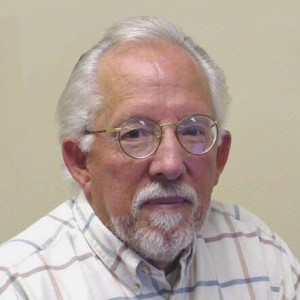 Donald Blakeley is emeritus professor of philosophy at California State University, Fresno and adjunct lecturer in the Department of Philosophy at the University of Hawaii at Manoa. We invited him to answer the question “What norms or values define excellent philosophy of religion?” as part of our “Philosophers of Religion on Philosophy of Religion” series.
Donald Blakeley is emeritus professor of philosophy at California State University, Fresno and adjunct lecturer in the Department of Philosophy at the University of Hawaii at Manoa. We invited him to answer the question “What norms or values define excellent philosophy of religion?” as part of our “Philosophers of Religion on Philosophy of Religion” series.
The norms that characterize excellent philosophy of religion are usually thought to be the norms that characterize philosophy as a discipline. Since philosophy may function in constructive system-building (speculative, worldview) ways as well as critical or analytical ways, two different but overlapping sets of norms are generally observed.
The constructive (system-building) work includes explanations about the nature of reality, knowledge, human nature, the good life, and the good society. The norms would include clarity, comprehensiveness, adequacy, precision, coherence, consistency and the capacity to defend what is being maintained.
Norms of analytic work include attention to logical principles and fallacies in reasoning (argument, justification), attention to semiotic (syntactic, semantic, pragmatic) functions in communication, and the investigation of the meaning of particular (or clusters) of concepts wherever these may occur, including the nature of their referential intention.
What today are identified as religions (or, more generally, spiritual options for living) have developed their own distinctive philosophical commitments involving assumptions, sources, methods, norms and goals. As components of a religion, these religious philosophies themselves have their own standards and provide the subject matter for independent (etic) philosophical investigation, i.e., philosophy of religion. Philosophy functions comparably in other fields as philosophy of science, history, et al.
If philosophy on its own strives for the wisdom to understand (intellectually) and achieve a well-functioning life (practically), religions want more. Assurance is desired that some ultimate reality will serve as the foundation for meaning and value and function as a resource to fulfill human needs and aspirations. The terminus has many names: God/Allah, Brahman, Dao, the One, Taiji, sunyata, Waheguru, supreme mystery, and numerous others. Common human issues such as death, justice, freedom, self, time, truth, and love have a place and meaning determined by the individual religious philosophy.
The conceptual structures (belief systems) vary greatly. Each involve the cultivation of subtle and complex sensibilities expressed in various practices. Their ideas and values operate within a specific linguistic and cultural history. A philosophical analyst should be attentive to and carefully track the distinctive “logic” and language employed by a religion, the way its concerns actually operate. Testing the viability of religions can benefit the distinctive efforts of both philosophy and religion.
This task, daunting as it may be, is especially so when attempting to engage in comparative analysis of religion(s). A wider perspective, however, decreases the hazards of parochial or sectarian analysis. In the West, philosophy of religion has focused mainly on monotheisms. As a matter of fair and informed analysis today, it must acknowledge and operate in the context of religious diversity, becoming familiar with the constructive and analytic resources of non-Western perspectives.
The role of authority assumed in religions, resting on materials (texts, etc.), special persons, or historical occurrences, is conferred because the sources provide access to what is considered to be experientially edifying. The beliefs advocated are assumed to be true and right because they confirm what is fundamentally real and of utmost value. Philosophy of religion challenges such claims not with anti-religious bias but as a matter defined by principles of responsible thinking.
The roles of reason, belief, and justification in each religion have an important and distinctive place. Reasoning is a part of any religion, even as its competence is assessed differently in religions. Beliefs of some kind are needed to guide thinking and action. Reasoning functions to make clear basic commitments and their implications—even as studies show that much decision-making is influenced by other forces. Being religious involves adopting ideas and values, encouraging the establishment of dispositions to think, feel, and act. Beliefs without rational or empirical warrant, based on faith or conviction, simply beg questions that need to be addressed. Such should not be considered meritorious.
Religion cannot be limited to arguments nor can the value of intuition, feelings, emotions, and hopes be dismissed. Since interpretation is unavoidable and because much is at stake, critical analysis should not be sidelined. Even when the very capacity to reason is taken to be limited and fallible, there needs nevertheless to be reasons against reasons, arguments against arguments. Believing to generate an experience that will confirm a belief itself requires further evidence, expertise in the dynamics of belief formation, confirmation bias, and so on.
When a religion says: “Engage in these practices and stop thinking,” etc., this injunction itself depends on beliefs about the importance of such advice. In this sense, there are no religions without beliefs. Claims like “Reason is the devil, a whore, an obstacle, a deceptive distraction,” etc., would depend on reasons and beliefs to make intelligible the position advocated. Judgments about the inadequacies of reason have led to the advocacy of trans-reasoning (faith, passion) or anti-reasoning (“because it is absurd”) or no-reasoning (“empty the mind”) positions, the consequences of which deserve careful consideration.
Religions depend on their own relatively autonomous identity which secures their character and immunizes them from outside (philosophical, scientific, and other) disturbances. This can lead to religious exclusivism where only one religion is true or religious inclusivism where one religion (or perspective on religions) weighs other religions as being of lesser value than the true religion, or to religious plurality (perhaps relativism) where all religions have their truth and value in their own way for those who need and benefit from them.
Because of unprecedented contact in media today, dealing with religious diversity is imperative. Any serious encounter with practitioners of religious worldviews cannot help but be impressed by the thoughtful and heartfelt devotion to the realization of common human aspirations. As important as this is, however, it is limited. The contact and sharing in respectful ways function in very different ideological contexts, with different rationales and destinations.
These comments indicate operational norms typical of philosophy of religion. The place of critical thinking, doubting, standards of evidence, verification, and justification varies in religions, but it has been an essential part of philosophy.
Current challenges for philosophy of religion today include ongoing considerations about the interface between epistemology and metaphysics (or ontology). Post-Kantian responses seen in existentialism, phenomenology, hermeneutics, semiotics, pragmatism, and ongoing debates between realists, anti-realists, new realists and others have important implications for religious philosophies which depend on realist assumptions.
Outside philosophy and religion, evolutionary neuroscience, genetic engineering, nanotechnology, artificial intelligence, linguistics, and other developments are challenging traditional understandings of the meanings and assumed mechanisms that support religious and philosophical ways of knowing and living. This new environment raises serious questions about how to interpret reality, human nature, self-identity, values, and social-political affairs. It challenges the assumptions made by religions that they can provide answers to the big questions and supply remedies for the needs of humanity that are not otherwise available.


